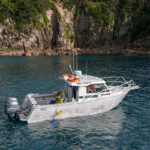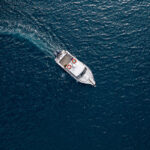Keeping the oceans blue: A day in the life of a marine ranger SPONSORED
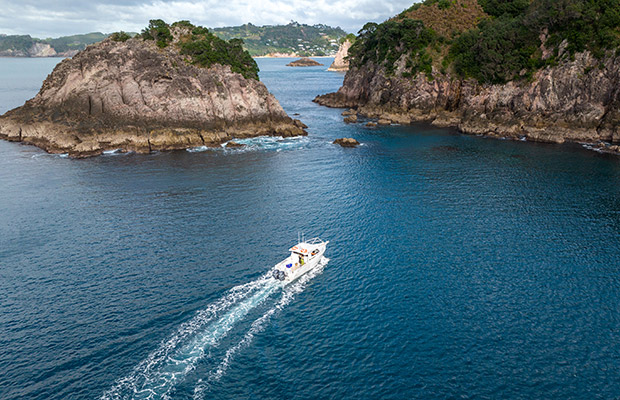
A day in the life of marine ranger Marie Everth, of Te Whanganui-O-Hei Marine Reserve, involves wearing four hats — scientist, enforcement officer, advocate and educator.
Created for the Department of Conservation
The sun isn’t long out of bed when marine reserve ranger Marie Everth eases the 7.5-metre aluminium hardtop away from Whitianga Marina. Marie and her colleague James Blackmore are eager to get a jump on the day, a sunny, public holiday. Soon the nine square kilometres of marine reserve off the Coromandel coast, roughly between Hahei and Whitianga, will heave with boats.
Hopefully, the boaties will remember the rules of the marine reserve so Marie and James can get on, uninterrupted, with scientific monitoring. They notice a boat by Mahurangi Island at the reserve’s eastern end. It’s stationary and maybe of interest.
However, they’re keen to get their scientist hats on, and despite air and water temperature at a bone-chilling 14.5°C, they don wetsuits and slip overboard. They lay out three 50-metre transect lines on the ocean floor and count every crayfish along them. They will do this in eight locations inside the reserve (crays all the way) and eight outside it (next to none).
When they resurface, many boats are around, including the one spotted earlier near Mahurangi Island. Like a police officer or traffic cop, Marie has an intuition for when rules are being broken. The boat appears too close to the island to fish legally, and there’s no point being there otherwise. Only a marine scientist would swim in this chilly water.
“Job on,” says James, steering their boat, Kuaka, while Marie readies a surveillance camera. There are always two DOC officers onboard — one to manage Kuaka and one to manage compliance. Both are qualified skippers, marine scientists, qualified divers and enforcement officers.
Marie is the specialist marine reserve ranger, so she takes the lead in compliance work. Sometimes it can be confrontational, but mostly it is educational. She is surprised by how many people don’t know they are fishing illegally despite signs at every boat ramp and poles marking the reserve.
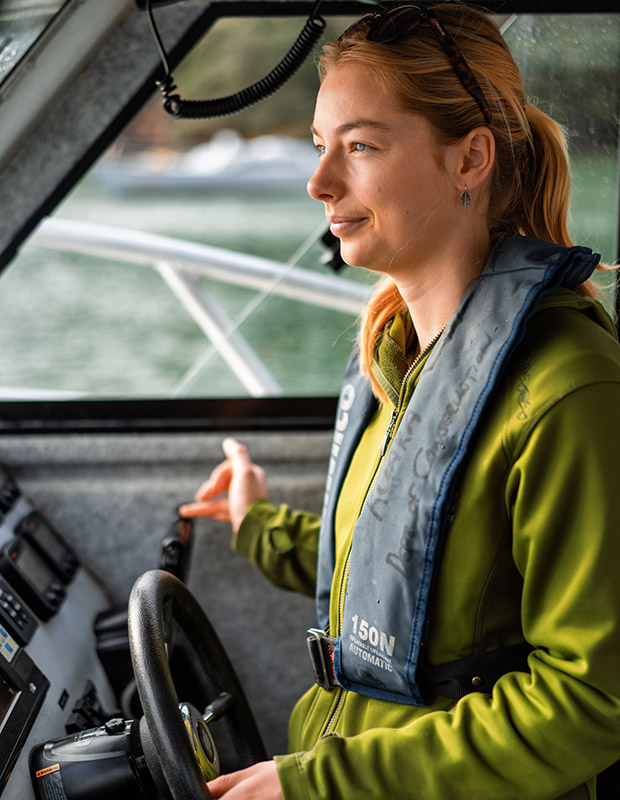
“It is not just new New Zealanders. Sometimes third-generation Kiwis aren’t aware of the reserve and the rules.” Ignorance is no protection from prosecution, however.
The boat of interest is moving behind the island. Marie and James follow on alert. It nears two craypots bobbing in the swell before veering away to the north. A quick check with Kuaka’s navigation system confirms the craypots are 10 to 15 metres outside the marine reserve boundary. Close — very close — but perfectly legal.
So it is back to science. This time sampling seawater destined for the University of Otago’s ocean acidification monitoring. Then Marie will lower a baited box, measuring marker and GoPro camera to the seafloor for 30 minutes.
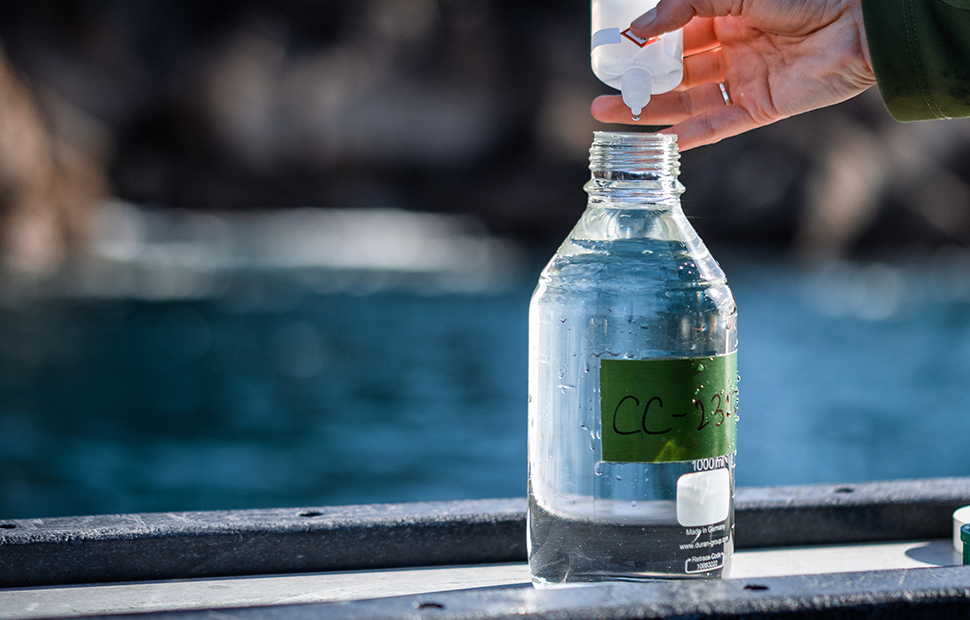
The team will study the GoPro footage later, and individual fish will be counted and measured. The last time Marie did this, a mother and baby orca were filmed playing with the camera. (See below). Fish monitoring also happens physically when James and Marie are in the ocean. Some species are curious and so divers attract them; some are shy and disappear when divers are around. This is why the information from the GoPro camera is cross-referenced with what the pair see on physical dives.
Yesterday, Marie managed a beach litter survey to collect, identify and remove every piece of litter in a 100-square-metre area. Her day is about measuring, monitoring and preserving, and she can’t think of a better way to spend it.
What does a marine reserve ranger do?
Broadly, the two categories of compliance and scientific monitoring cover their responsibilities.
What is allowed in a marine reserve?
Swimming, snorkelling, kayaking, bird watching and SCUBA diving.
What is not allowed in a marine reserve?
Fishing, feeding fish, removing any natural material (even sand).
How you can help
If you find someone fishing in a marine reserve, call the DOC hotline, 0800 362 468. If appropriate, tell the fishers it is illegal to fish in a marine reserve.
What happens?
Illegal activity in a marine reserve earns an automatic fine of $600. Serious breaches incur higher penalties.
Love this story? Subscribe now!
 This article first appeared in NZ Life & Leisure Magazine.
This article first appeared in NZ Life & Leisure Magazine.
